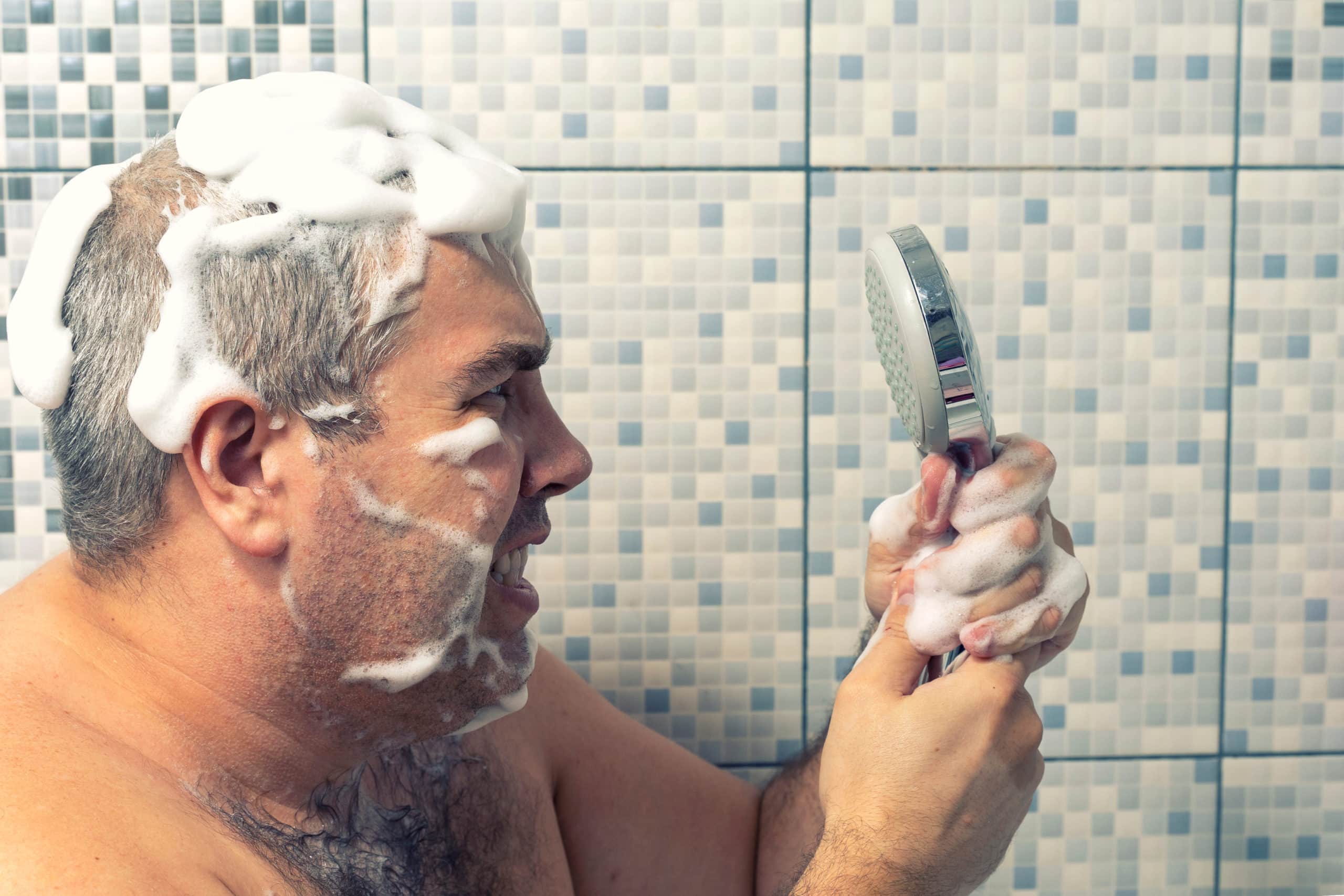If you’re like me, you probably enjoy a nice hot shower at the end of a long day. Unfortunately, there may be times when your shower randomly stops working. This can be frustrating and confusing, especially if you don’t know what’s causing it.
Often the shower doesn’t stop out immediately, first its flow decreases, then it stops out completely. A shower stops working when the main supply valve is turned off, the pump is supplying very low pressure, the shower head gets clogged, the shower heater is bad or there is a problem with the shower’s diverter valve.
Further, in the post, I will discuss the common causes of a shower that stops working and some possible remedies to fix these issues.
7 Reasons Which may Cause the Shower to Stop Randomly
You are in a middle of a shower and it stops suddenly; that’s the most annoying and troublesome thing. You get panicked if you are unaware of the reasons which might have caused this to happen. Here is a list of seven possible reasons why your shower might have stopped suddenly.
Main Supply Valve is OFF
If someone purposefully or mistakenly turned off the main supply valve, then your shower along with other fixtures will have no water. If that’s the case, you can check out nearby faucets.
Low Water Pressure: Water Pump is At Fault
If the pump turns bad, then likely another cause of no water in the shower. Again, if that’s the case, you will see other taps also lack water. If you’re in a residential building, other homeowners may same the face problem.
Shower Head is Clogged
If the Shower head had low pressure in the past few days and it was throwing off water properly. Then, a random failure means it is choked.
If your shower head is clogged with minerals, it is likely because the water in your area is hard. Hard water contains a high amount of calcium and magnesium, which can build up over time and cause your shower head to become clogged.
Problems with Water Heater
In some cases, you may observe that the shower may not turn on with the hot water line. However, it works when you turn on the cold line. This is something to do with the water heater. To be sure, you can check out other faucets receiving hot water in your kitchen or other areas.
Bad Diverter Valve
The diverter valve is responsible for redirecting water from the tub to the shower head. If this valve is not working properly, it can cause your shower to randomly stop working. In this case, you will observe water coming out of the bathtub’s faucet instead of the shower head.
Shower Faucet is At Fault
When your shower faucet gets old, its parts are worn out and don’t function well. Some of the internal components may break and restrict the water flow, causing the shower head to stop.
Bad Solenoid Valve
If you have an electric shower and it has randomly stopped working, then that may be due to a bad solenoid valve. The solenoid is a coil inside the shower. When the coil gets torn, then the circuit is incomplete, and the valve fails to open the shower.
How to Fix a Shower that Randomly Stops Working?
To fix the problem, the first step should be the identification of the cause. So, if your shower stops, you need to check the other faucets of the house.
Fix #1: Check out Main Supply Line and Ask Residents
If there is no water in other faucets as well, that means the problem is with the main line. Check out the main supply valve of your house. If that’s turned ON and still there is no water in the house, then check your water pump, or if you live in a building, check out with residents.
Some people may have trouble locating their main supply valve. If that’s the case, I would recommend you call an expert plumber. He will guide you through the plumbing system of your house, and next time you may fix the problem on your own.
Fix #2: Check out your Water Heater
If other house faucets are fine and there is no water. Then, that means the problem lies with the shower and its connected systems. First, check out through which water line is the shower head not working. Is it the hot water line or the cold one?
If the shower head works when you turn on cold water but turns off when the hotline is engaged. That means something has gone wrong with your water heater. Inspect your water heater, is it turned on?
If it’s OFF, turn it ON again. If the problem persists or the water heater is not powering, then you will need to hire a professional.
Fix #3: Clean the ShowerHead
If the showerhead was previously slow and you ignored that fact. It means that it was partially clogged and now it’s fully clogged.
You have two ways to clean out your shower head. One way is to clean it while hanging while the best way is to remove it clean with a brush and soak it in a vinegar solution.
- Take a plastic bag, fill it with a solution of vinegar, and hang it onto the shower head. Make sure the shower head is completely submerged in the solution. For best results, let it stay overnight.
- Another way is to remove the shower head from its stem. However, close the main supply line before that. Take out the showerhead with a wrench, and soak it in a bowl full of vinegar solution. After a few hours, clean it with a brush and wash it thoroughly with water.
Fix #4: Replace Solenoid Valve
For an electric shower, the problem usually lies within the electric circuit. In most cases, the solenoid valve is at fault. Replacing it may not be an easy task for you. You will need an electrician for the job. However, if you’re confident in doing it yourself, here are a few steps:
- Turn off the isolating switch of your shower.
- Take out the fuse and turn off the main supply. (These initial steps are necessary to avoid an electrical shock.)
- Next, take out the shower screws to expose the solenoid.
- Place an Ohm meter on the two terminals of the solenoid and check if the reading is below 3.5 Ohms.
- Carefully, detach the solenoid from the nearby components, and replace it with a new one you bought from the market.
Fix #5: Change the Diverter Valve
When the shower head loses water and water starts pouring down the tub spout instead, then the diverter valve is at fault. To fix the diverter valve, follow these steps:
- Stop the flow of water into your shower by turning off the supply valve.
- Seal the drain with tape so that small screws may not fall down the drain pipe.
- First, you can try adjusting the diverter valve by turning the screws that are located behind the faceplate. If this fixes the shower head, that’s enough. If not, proceed with the next step.
- Take apart the shower diverter valve. If the valve bears are rotating screws, you will need to remove it entirely from the stem. However, if it’s a gate valve, just unscrew the threaded bathtub spout.
- Install a new diverter valve, and tighten it with a wrench.
- Turn on the main supply and test the shower head. If it routes water back to the shower and no water leaks through the tub spout, then the fix has been successful.
Final Words
These were some of the most common causes and solutions to a shower that randomly stops working. I hope one of these five fixes will solve your shower head issue. If the problem persists, you may need to call a professional.
Leave us a comment and let us know which fix worked for you. Also, feel free to share this guide with anyone who may need it.

Amos Christen graduated with a bachelor’s degree in Interior Design from Drexel University — Philadelphia, PA. Since 2003, Amos has worked with top interior design professionals in this area, including architects and interior/graphic/lighting designers. As a skilled interior designer, Amos Christen is highly versed in fine arts and crafts and uses that to supplement his main area of expertise. He often publishes articles related to home décor on several websites, including Sprucetoilets.com, Sprucebathroom.com, and Mybesuitedhome.com. He also contributes to leading interior design magazines.
